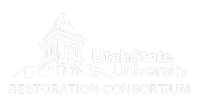USFW Wyoming Assessment and Design Workshop
June 23-27, 2025
Description
The workshop is intended to provide more advanced instruction related to riverscape assessment and design of low- tech’ process-based restoration (LTPBR) for resource managers, land-owners, and conservation groups. We will review principles guiding low-tech process-based restoration, beaver ecology, and construction and logistics approaches for low-tech structures, including Beaver Dam Analogues (BDAs) and Post-Assisted Log Structures (PALS). However, the focus of the workshop will be on gaining a greater understanding of the questions to ask during the assessment and design processes, how to identify and manage uncertainty, and how to implement projects in an adaptive management framework to maximize “learning by doing”. There will be a review of potential GIS tools to assist in the planning process, but we will not be providing training on the tools. We will also provide updates on lessons learned from assessing, planning, and implementing dozens of LTPBR projects across a wide variety of geographic settings. A LTPBR website is provided which includes more in-depth information including links to digital copies of a low-tech process-based restoration manual and pocket guide, and many online lecture series which can be viewed either as videos or pdf documents. We encourage workshop participants to review Module 1 online or read chapter 1 from the Low-tech Manual before the workshop. Digital copies of the manual and pocket guide are available free of charge from the low-tech webpage.
How to Get There
- We will meet for lectures at the Donald E. Young Sports and Fitness Center Monday, June 23rd from
9:00am-2:00pm, and Thursday, June 26th from 8:30am-10:00am.
- 1625 St Joe St, Spearfish, SD 57799; classroom 214; park in public parking lot (no fee)
- We will travel to field sites each day to conduct assessments and develop LTPBR designs (see map of sites and agenda below)
- We may meet at the USFS offices in either Spearfish or Sundance Tuesday, Wednesday, and Friday mornings to go over logistics and clarify workshop topics as needed
Map of Sites
What’s Provided
- Lunch each day
- Digital copies of presentations and background documents
- Carpooling - please request ahead of time
What to Bring
- Closed toe footwear, clothes you can get dirty in
- Wading boots or waders
- Water and snacks
- PPE (sun protection, ear protection, work gloves, eye protection, hard hat)
- Some PPE will also be available on-site (please request ahead of time)
Reading Material
Please review these papers for discussions throughout the workshop (available on the Black Hills workshop website linked below)
Wohl et al. 2019 – Wood regime
Supporting Materials
- General Low-tech PBR website
- Low-tech PBR online virtual workshop
- Riverscapes Models
- Riverscapes Quick Start Guide
- Black Bills Riverscapes Memos
- Google Photo Album
Agenda
Monday, June 23
1. Introductions & Agenda
9:00-9:30: Introductions, Agenda, & Goals of Workshop
2. Background and Principles
9:30-9:45: Background (PG p.5, DM Ch.1)
- What we've lost and importance of structure
- Questions/Discussions 5-10 mins
9:45-10:00: Guiding Principles (PG p.1, DM Ch.2)
- Process-based Restoration Principles
- Riverscape and Restoration Principles
Section Questions/Discussions 5-10 mins
- Review papers
3. Assessment, Uncertainty, Design, & Implementation
10:00-10:45: Connecting Observations with Goals and Objectives (PG p.7, DM Ch.3)
- Historic Imagery - Matt Scott
- Assessment and Interpretation
- Setting - regimes (flow, sediment, and wood/vegetation), beaver, geomorphic
- Uncertainty - risk, adaptive management, and expectation management
- Questions/Discussions/Exercises 10-15 mins
10:45-11:00 - BREAK
11:00-11:15: Planning & Design Process (PG p. 20, DM Ch.5)
- Riverscape models
- Elements of a LTPBR design
11:15-11:30: Low-tech Approaches & Implementation (PG p.23, DM Ch.4&6)
- Low-tech toolbox (beaver mgt, riparian mgt, forestry mgt, structures)
- Questions/Discussions 5 mins
Section Questions/Discussions 10-15 mins
4. Science & Policy
11:30-11:45 Science behind Low-tech process-based restoration – Steve
- Case-studies of riparian & beaver management, and low-tech structure projects
- Where it works; Where it does not
- Questions/Discussions/Exercises 5-10 mins
11:45-12:00 Permitting and Water Rights – USFS Matt Scott -Social, permitting, and legal aspects of low-tech design and implementation -Questions/Discussions 5-10 mins
5. Discussion & Questions
12:00-12:30. Participant Discussion Topics/Ask a Low-tech Practitioner a Question - All
- Class participation and discussion on material presented and other topics
12:30-14:00. LUNCH AND TRAVEL to Spearfish and Little Spearfish
- Matt to provide directions and details
6. Monday Field Trip
14:00-16:30. Explore beaver and wood influenced site
- Practice reading the riverscape and identifying and describing the influence beaver have
- Two stops – Rod and Gun campsite and wider valley upstream (1-1.5 hrs)
- Review role of wood in streams
- One stop where tornado blow down is significant (< 0.5 hrs)
Tuesday, June 24
Tuesday Field Trip
8:00-12:00 Beaver Creek. Assessment and Design
- Lower site and River Left Trib
- Assess condition, observations, risk, and uncertainty
- Design LTPBR structures and approach for site
- Expectations and monitoring
13:00-16:00 Whitelaw Creek. Assessment, Design, and Implementation
- Implement LTPBR at Whitelaw
- Go over safety procedures
- Install large BDAs and 2-3 PALS
- Review and discuss experience
Wednesday, June 25
Wednesday Field Trip
08:00-16:00. East Fork Blacktail: Assessment and Design Tour
- Field visit to East Fork Blacktail
- Observations, risk, and uncertainty
- Review structures … monitoring
- Design approach
- Expectations and monitoring
Thursday, June 26
Thursday Field Trip
08:00-10:00. Review in classroom at BHSC
10:00-16:00. Rapid and Silver Creek: Assessment and Design Tour
- Rapid Creek
- Trailhead assessment
- Beaver and risk
- Silver Creek and Green Gulch
- Review construction
- Review Experiment
Friday, June 27
Friday Field Trip
08:00-13:00. Prairie streams: Assessment and Design Tour
- Field visit to Prairie streams
- Observations, risk, and uncertainty
- Review structures … monitoring
- Design approach
- Expectations and monitoring

